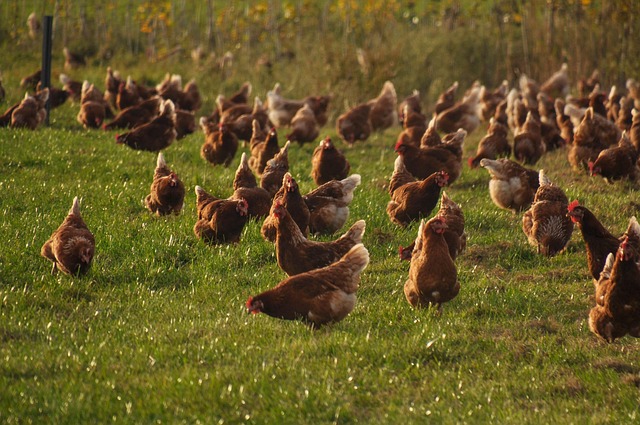Optimizing Your Home: Yard Waste Removal and Recycling Services

Yard Waste Removal and Recycling services play a dual role in environmental health and neighborhood…….
In an era where sustainability and environmental stewardship are at the forefront of global efforts, yard waste removal and recycling have emerged as vital components of a circular economy. This article delves into the intricate world of transforming organic byproducts from landscapes and gardens into valuable resources, offering insights into its importance, global impact, and future potential. By exploring various facets, from technological advancements to policy frameworks, we aim to equip readers with a holistic understanding of this dynamic field.
Yard Waste Removal and Recycling (YWRR) refers to the process of collecting, managing, and converting organic materials generated in residential, commercial, and institutional settings from yards, gardens, and parks. This includes a wide range of waste streams such as lawn clippings, tree trimmings, leaves, grass cuttings, food scraps, and plant debris. The core components of YWRR involve:
Collection: Efficient and structured collection systems are essential to gather yard waste from sources like residential neighborhoods, public spaces, and commercial properties. This can be achieved through dedicated waste collection services or community-based programs.
Separation and Sorting: Proper sorting facilities ensure that different types of organic materials are separated, allowing for targeted recycling processes. Manual sorting by workers or automated systems using advanced sensors and machinery plays a crucial role here.
Composting: One of the primary recycling methods, composting involves the controlled decomposition of organic matter into nutrient-rich compost. This process reduces waste volume, creates valuable soil amendments, and minimizes greenhouse gas emissions.
Recycling and Upcycling: Beyond composting, YWRR includes various recycling techniques, such as bio-digestion for biogas production, turning food scraps into biodiesel, or utilizing organic materials for value-added products like biochar or biodegradable plastics.
Historically, yard waste removal was primarily focused on disposal through landfills or incineration. However, growing environmental awareness and regulatory pressures have driven the adoption of recycling and composting practices, transforming this sector into a significant contributor to sustainable development.
The global landscape of YWRR is dynamic and diverse, with varying levels of implementation and success across regions. Several key trends shape its development worldwide:
Increasing Environmental Awareness: Growing public consciousness about climate change and environmental degradation has fostered a demand for sustainable waste management practices, including YWRR.
Government Initiatives: Many countries have introduced stringent waste management regulations, incentivizing or mandating the recycling of organic materials. For instance, Europe’s Circular Economy Package sets ambitious targets for recycling and reduces landfill disposal.
Technological Innovations: Advancements in collection, sorting, and processing technologies have improved efficiency and reduced costs, making YWRR more accessible and economically viable.
Community Engagement: Community-driven programs and initiatives play a vital role in promoting YWRR, fostering local participation and ownership of sustainable waste management practices.
North America: The United States and Canada have made significant strides in YWRR, with many cities implementing comprehensive organic waste collection programs. However, regional disparities exist, with some areas still relying heavily on landfills.
Europe: Leading the way in circular economy policies, European countries have high rates of yard waste recycling and composting. Germany, for instance, boasts an impressive compost utilization rate, with over 50% of organic waste being recycled.
Asia Pacific: Rapid urbanization presents both challenges and opportunities. Some Asian cities, like Tokyo, have efficient YWRR systems, while others struggle with inadequate infrastructure and waste management practices.
Latin America and Africa: These regions are witnessing growing interest in YWRR due to environmental concerns and government initiatives, but implementation varies widely between countries.
The economic aspects of YWRR are multifaceted, influencing its viability and market dynamics:
| Economic Factors | Impact |
|---|---|
| Market Demand | Increasing demand for organic fertilizers, soil amendments, and bioenergy drives the market growth. |
| Collection and Transportation Costs | Efficient collection systems and optimized routes can significantly reduce operational costs, making YWRR more economically feasible. |
| Recycling Facility Setup | Initial investment in sorting, composting, or biorefinery facilities is high but offers long-term benefits through reduced waste disposal costs. |
| Government Incentives | Subsidies, tax breaks, and feed-in tariffs encourage private sector participation and investment in YWRR infrastructure. |
| Waste Disposal Fees | Higher landfill disposal fees motivate businesses and municipalities to explore alternative solutions like YWRR. |
Organic Fertilizer and Soil Amendments: The global market for organic fertilizers is projected to grow at a CAGR of 7.2% from 2021 to 2028, driven by the increasing demand for sustainable agricultural practices. YWRR provides a steady supply of high-quality compost, catering to this growing market.
Biogas and Bioenergy: The production of biogas from organic waste is gaining traction as a renewable energy source. This sector offers opportunities for revenue generation and reduces reliance on fossil fuels.
Public-Private Partnerships (PPPs): Collaborating with private waste management companies can leverage their expertise, technology, and financial resources while ensuring public oversight and environmental standards.
Community-Based Initiatives: Local communities can own and operate YWRR facilities, fostering a sense of responsibility and ensuring the program’s success.
Subsidized Programs: Government subsidies and incentives can help offset initial investment costs, making YWRR more accessible to smaller municipalities.
Technological innovations play a pivotal role in enhancing the efficiency and sustainability of YWRR processes:
Advanced Sorting Technologies: Image recognition, AI-driven sensors, and robotic systems improve sorting accuracy, enabling efficient separation of organic materials for recycling or composting.
Automotive Innovations: Electric and autonomous collection vehicles reduce emissions and operational costs, making yard waste collection more environmentally friendly.
Digital Platforms: Mobile apps and online platforms facilitate community participation by providing real-time information about collection schedules, sorting instructions, and local recycling opportunities.
Biorefinery Technologies: Advanced biorefinery processes turn complex organic materials into a range of value-added products, including biofuels, chemicals, and high-protein animal feed.
Government policies and regulations are instrumental in shaping the YWRR landscape, providing a supportive environment for its growth and development:
Waste Management Regulations: Many countries have implemented waste management frameworks that mandate recycling targets, ban certain types of waste from landfills, and promote circular economy principles.
Incentives and Subsidies: Financial incentives, such as tax credits or grants, encourage businesses and municipalities to invest in YWRR infrastructure and programs.
Standardization and Certification: Establishing standards and certification programs for compost and recycled products ensures their quality and consistency, fostering consumer trust.
Education and Awareness Campaigns: Public awareness campaigns play a crucial role in encouraging participation in YWRR by highlighting its environmental benefits and personal contributions.
Despite significant progress, the YWRR sector faces several challenges that must be addressed to unlock its full potential:
Inconsistent Collection Services: Inadequate or inconsistent collection schedules can discourage participation, especially in residential areas. Standardized and reliable collection systems are essential.
Infrastructure Development: Building and maintaining sorting facilities, compost piles, and biorefinery plants require substantial investment, which can be a barrier for smaller communities or developing nations.
Public Awareness and Participation: Educating the public about YWRR benefits and proper waste separation is crucial to ensure successful program implementation. Engaging local communities can foster higher participation rates.
Market Volatility: Fluctuations in commodity prices and market demand for recycled products can impact the financial viability of YWRR businesses. Diversifying revenue streams and long-term contracts can mitigate risks.
Yard Waste Removal and Recycling is a dynamic and evolving field, offering significant opportunities to create a more sustainable future. By embracing technological innovations, implementing robust policy frameworks, and fostering community engagement, the global YWRR sector can contribute substantially to climate change mitigation, resource conservation, and circular economy principles. As awareness continues to grow, the potential for transforming organic waste into valuable resources will only increase, paving the way for a greener and more resilient world.

Yard Waste Removal and Recycling services play a dual role in environmental health and neighborhood…….

Yard Waste Removal and Recycling is crucial for environmental health and sustainability, preventing…….

Yard Waste Removal and Recycling services address the environmental impact of managing organic mater…….

Composting is an eco-friendly solution for yard waste removal and recycling, transforming scraps lik…….

Understanding Organic Recycling for Eco-Friendly HomesYard Waste Removal: A Key Component in Sustain…….

Yard waste removal and recycling are vital for eco-conscious yard maintenance. Traditional methods s…….

Seniors often face challenges managing yard waste due to physical limitations, leading to accumulati…….

Branch chipping, pruning, and sustainable yard waste removal are vital for landscape health and envi…….

Seniors face challenges maintaining yards due to physical limitations, leading to neglected spaces t…….